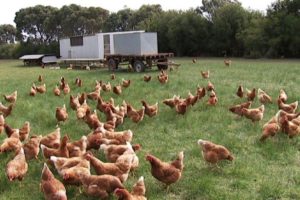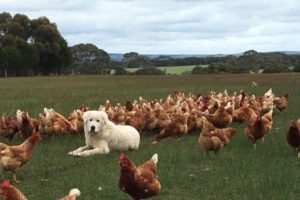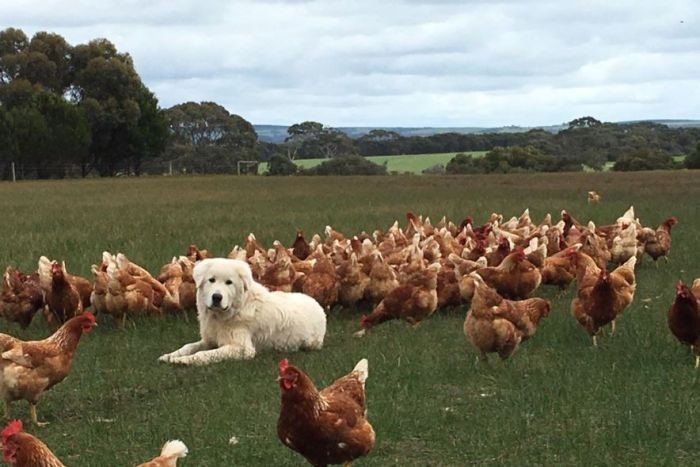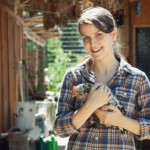PROOF Eggs are the Best Option
Have you heard of the latest way to make sure your eggs come from happy chickens? “PROOF” eggs stand for “Pasture Raised on Open Fields” and is a new terminology applied to raising happy chickens. We are starting to hear more about pasture raised chickens, which is much better for the chicken over battery farming of poultry.
The problem is not only with Battery farming of chickens, but also with the changes being made to the definition of “Free Range” chickens. The problem with the definition of free range is that it is a whole lot less free range than it used to be! A free range chicken farm these days seems to resemble a battery farm, just without the individual cages. There are still thousands of chickens crammed into an enclosed barn, and with minimal exposure to the fresh air. This is not what the pictures and the advertisements for free range chickens look like, and not everyone is happy about it.
What is Pasture Chicken Farming?

So a new definition of chicken friendly farming has arisen – known as “pastured” chicken farming. This method typically involves keeping chickens in mobile batteries that are moved around a pasture, so that the chickens get to graze across fresh pasture, until each patch becomes tired, and the chickens are moved onto the next patch. This method of pastured chicken farming is excellent for the chickens, but is also excellent for the pasture. The chickens eradicate weeds and bugs, and the leave behind nitrogen rich droppings, which fertilize the pasture and reinvigorate the soil.
What happened to Free Range chickens?
A free range chicken used to mean that a chicken farmer could keep 1500 chickens per hectare, to meet the definition of a free range chicken. But this definition has now blown out to in excess of 10,000 chickens per hectare, which is obviously much more in favor of the farmer, rather than the chicken. The situation gets even worse for the poor chickens. According to the definition, a free range chicken is supposed to get “regular access to the outside”. But this is subject to much interpretation, and from what I have seen from pictures of these oversize barns, there is more emphasis on the number of chickens packed in there and less about the outdoor area. I doubt that some farms have enough outdoor area for all of the chickens, let alone have enough green grass and fresh air for all the chickens.
This is not what it looks like in the pictures!
Exactly, free range chicken farming is promoted to egg buyers as an idyllic way to raise chickens, with sunshine, green grass and fresh air. But in reality, this is not an accurate picture of free range farming of chickens. Most free range chickens are actually stuck inside a massive shed with thousands of other chickens all crowded side by side. So called free range chickens actually live in a crowded, noisy and smelly barn, fighting for food and water at the mass feeding stations.
So why do Free Range eggs cost more?
And this is the crux of the problem. Free range eggs are advertised as being the top of the range product in terms of chicken welfare. Therefore buyers are coaxed into paying a premium price for the “privilege” of eating eggs, from happy and healthy chickens. In actual fact, since the definitions of free range farming have changed, the free range chickens appear to be raised more akin to battery hen conditions.
But the price for free range eggs remains high!
That is correct, even though the conditions for free range farming have swung heavily in favor of the free range chicken farmer, and against the free range chicken, there has not been a noticeable reduction in egg prices. And this is the problem with changing the definition of free range chicken farming. The chickens have not been protected from industrialization of farming processes, and the consumer is still paying a premium price.
Is there any other alternative to raise chickens?
Yes there is – welcome the pasture raised chicken! Because the pasture raised chicken means fewer chickens per acre, and more expensive farming techniques, then there is a higher cost to raising pastured chickens. I know that I would be happy to pay a premium if the chickens were truly raised as happy and healthy hens!
Different farming techniques are good for chickens!

The farmers who are dedicated to raising their chickens in the open pastures have to adapt different techniques and use some innovative ideas to make it workable. For example, the chickens live in mobile coops that can be moved around the pasture, to keep the pastures from being denuded. Because there is no protective fencing around the chickens, they are truly “free range”, but there can be problems with that approach. Predators can be a problem both in terms of attacking chickens, but also stressing the flock, which can affect egg laying. So one of the innovations is the use of Maremma watch dogs which can be trained to keep a protective eye on the chickens, and chase off foxes, crows and eagles.
Costs a little more for PROOF eggs
But these chicken farming innovations come at a higher cost to the farmer. Because there are not as many chickens per acre on the farm, and the extra cost to keep the Maremma guard dogs, the PROOF eggs cost more to produce. But as people become aware of the differences in the meaning of what is called “free range” chicken farming, and what pastured chicken farming looks like, they are happy to pay a little extra. I know that I would prefer to know my eggs come from happy chickens, and the pictures of happy pasture raised chickens just look better to me!








